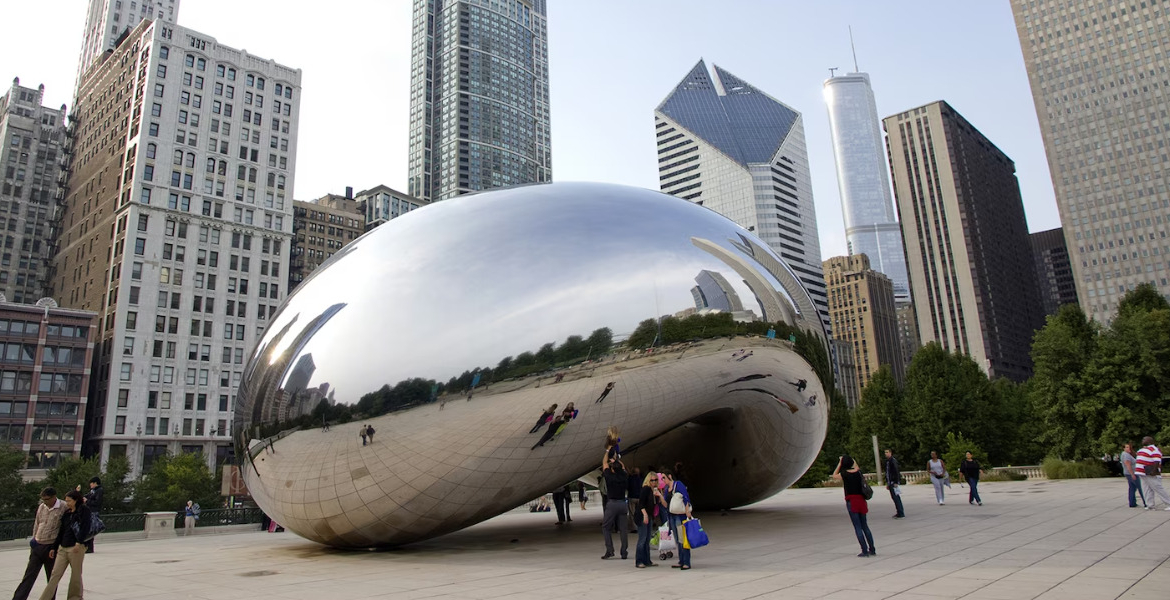Illinois Sees Sharp Increase in Citizenship Applications as Green Card Holders Worry

Amid evolving immigration policies and heightened anxieties, a growing number of legal permanent residents (LPRs) in the United States are actively pursuing naturalisation, seeking the security afforded by US citizenship.
The shift is particularly noticeable in communities like Chicago’s Southwest Side, where long-term green card holders are expressing increased concerns about potential restrictions on their residency status. Fueled by apprehensions over policy changes under the current administration, many green card holders are intensifying their efforts to meet the requirements for US citizenship. For residents like Maria and Francisco, a Mexican couple who have resided in Chicago for decades, the changing political climate has triggered a sense of urgency to solidify their legal standing in the country.
Francisco, 65, who has held a green card for 35 years, says, "I want to get citizenship to live peacefully here." His sentiments reflect a broader apprehension within the immigrant community that the protections traditionally associated with green card status may no longer be guaranteed.
Maria echoes her husband’s concerns, noting, "I trusted that I could renew my green card every 10 years. Now, the new government is scaring us. At any time, they could decide not to renew our green cards."
The couple's fears are rooted in recent proposals to increase scrutiny over citizenship applications, including examinations of applicants' social media activities, with officials describing the measures as vetting for potential "anti-Americanism." The government has also sought more extensive information about applicants' relatives, including phone numbers and locations, a move that immigrant advocates warn could endanger undocumented family members.
Across Illinois, advocacy groups estimate that approximately 400,000 LPRs are eligible for naturalisation. Organisations that assist immigrants with the citizenship process report a significant increase in applications as worries over immigration enforcement escalate. Idalia Flores Guzmán, director of programs administration at the Illinois Coalition for Immigrant and Refugee Rights (ICIRR), remarks, "People want to protect themselves in case anything happens."
She notes that citizenship applications have surged significantly in 2025, following steady increases over the past few years. Organisations like Instituto del Progreso Latino, a nonprofit providing immigration assistance, have witnessed the surge in demand firsthand. Their citizenship workshops, held monthly, have seen growing attendance as green card holders seek help securing full legal protections.
Although official government statistics on citizenship applications since the current administration took office have not yet been released, anecdotal evidence strongly suggests an upward trend. Recent government messaging has intensified anxieties among immigrants. Official statements on social media have referred to green card holders as mere "guests" in the US, raising concerns about their long-term security.
Some posts have implied that green cards could be revoked if holders engage in activities deemed a "public safety threat," though the administration has not clearly defined what constitutes such a threat. Immigrant advocates are particularly troubled by the implications of social media surveillance. They report that green card and visa holders have been targeted for supporting causes such as Palestinian human rights, actions that authorities have controversially linked to terrorism.
The vague criteria for identifying security risks, coupled with government monitoring of online activity, have left many in the immigrant community fearful that their freedom of speech could be used against them.
"People are worried about what the government is going to check," said Flores Guzmán. "If someone shared a post supporting Palestine or Ukraine, could that be used against them in their application? We don't know what kind of surveillance or how their social media activity will be interpreted."
Another controversial aspect of the new application requirements is the request for detailed family information. Advocates argue that requiring citizenship applicants to disclose information about relatives living in the US could have serious consequences for mixed-status families. Lucia Martel-Dow, director of the New Americans Campaign at the Immigrant Legal Resource Centre, cautioned, "If you have undocumented relatives, their names and whereabouts could be exposed through your application. That raises concerns about enforcement."
Despite the urgency many feel to secure citizenship, the process itself remains daunting. Legal permanent residents seeking naturalisation must undergo extensive background checks, answer questions about any prior arrests or immigration violations, and successfully complete an English and civics exam. Older applicants, in particular, may find the exams difficult. Nancy Sandoval, a Department of Justice-accredited representative working with ICIRR, urges applicants to seek legal guidance before submitting their paperwork.
"Immigration checks everything again," she said. "If there was any discrepancy in how someone obtained their green card, it could lead to complications."
For Maria and Francisco, the path to citizenship has required intense preparation. They have enrolled in citizenship classes through the Brighton Park Neighbourhood Council and spend much of their time studying the material. While Francisco admits that memorising facts about American history has been challenging, Maria remains optimistic about their progress.
The uncertainty surrounding immigration policies has prompted many to take proactive steps toward naturalisation, seeking security in a time of political unpredictability. Advocates fear that without clear guidelines, enforcement could become increasingly arbitrary, leaving even long-term legal residents vulnerable.
The Immigration and Nationality Act (INA) outlines the requirements for naturalisation, which include continuous residence as a lawful permanent resident for a specified period, physical presence in the United States, the ability to read, write, and speak English, knowledge of US history and government, and good moral character. The process typically involves submitting an application (Form N-400), attending a biometrics appointment, passing an interview, and taking the English and civics tests.








Comments
35 years and never applied…
Permalink
35 years and never applied for citizenship? That's stupid
Add new comment